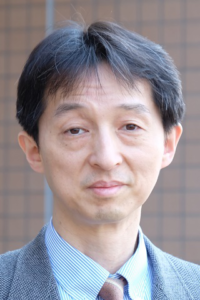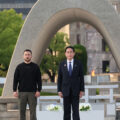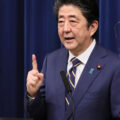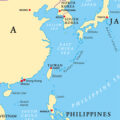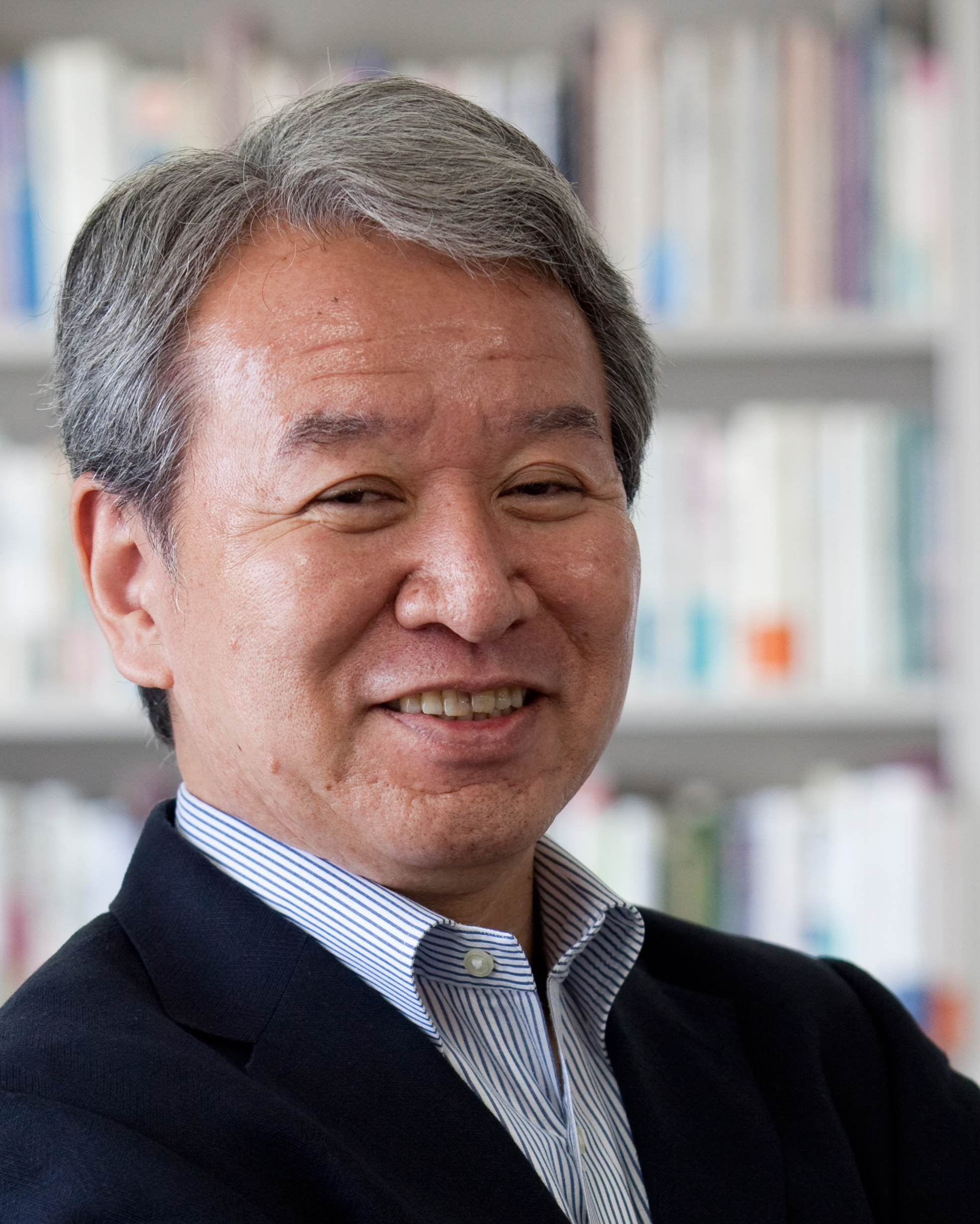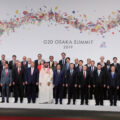The International Order That Africa Wants
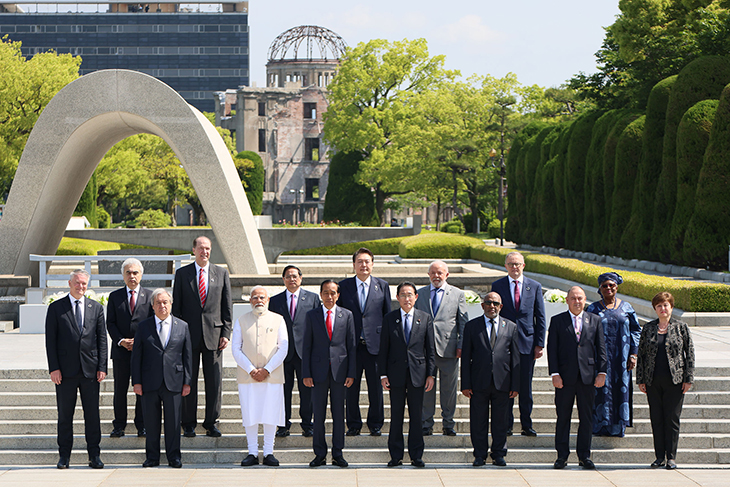
At the G7 Hiroshima Summit on May 21, 2023, response to the global south was an important topic on the agenda, and Prime Minister Modi of India, President Joko Widodo of Indonesia, President Lula of Brazil, and others were invited.
Photo: Cabinet Public Affairs Office
Takeuchi Shinichi, Professor, Tokyo University of Foreign Studies
Impact of UN General Assembly Resolution
About a year and a half has passed since Russia invaded Ukraine. Over time, it became clear that this war would deeply affect the international order and prompt its reorganization. It has the character of a proxy war between Russia and the West, which supports Ukraine. Therefore, each country’s stance toward this war naturally implies an evaluation of the international order led by the West. This war also revealed the fact that the current international order was not as supported by the world as Western countries had thought.
In response to the invasion of Ukraine, the United Nations General Assembly adopted a resolution condemning Russia on March 2, 2022. Of the 193 member states, 141 voted in favor, while nearly 30% of the total abstained (35), did not vote (12), and opposed (5).
Most of the latter are developing countries in the so-called global south, and in particular in Africa (54 countries), about half of the countries did not support the resolution. This fact was received with shock by Western countries, and since then efforts have been actively made to reach the global south and then Africa. It is still fresh in our minds that responses to the global south were an important topic on the agenda at the recent G7 Hiroshima Summit, and Prime Minister Modi of India, President Joko Widodo of Indonesia, President Lula of Brazil, and others were invited. In a marked departure from the Trump administration era, the US Biden administration has strengthened its involvement in Africa, with Secretary of State Blinken and Vice President Harris visiting African countries one after another.
Why do so many African countries not support the condemnation of Russia? Although Russia is waging information warfare in Africa, this is not the main reason why African countries distance themselves from the resolution condemning Russia. Rather, the reason lies in the actions of the Western countries that lead the international order. Below, we will examine Africa’s response to the Ukraine war, and consider what kind of international order we should envision.
Africa’s diplomatic positions
First, let’s confirm the stance of African countries on the Ukraine war. Regarding the UN General Assembly resolution mentioned above, 28 out of 54 African countries voted in favor, 17 abstained, eight did not vote, and one country (Eritrea) opposed. On April 7 of the same year, the UN General Assembly adopted a resolution calling for Russia to be suspended from the Human Rights Council. As a result, only 10 African countries voted in favor, 24 countries abstained, 11 countries did not vote, and 9 countries opposed. A UN General Assembly resolution passed on February 23, 2023, one year after the invasion, somewhat restrained its condemnation of Russia. However, there was little change in the voting behavior of African countries, with 30 countries voting in favor, 15 abstaining, seven countries not voting, and two countries voting against (Eritrea and Mali).
Two things are noteworthy. First, regional powers such as South Africa, Senegal, and Tanzania followed through on their actions by abstaining or not voting on any of the resolutions. Second, even countries such as Nigeria, Ghana, and Kenya, which supported condemnation of Russia in the resolution immediately after the invasion, abstained or did not vote in the April 7 resolution. Although it cannot be said that African countries have turned their backs on the West, it is clear that they have not acted in the way the West expected.
South Africa uses terms such as “non-aligned” and “neutral” to describe its stance. Needless to say, this was a concept developed in the 1960s at the initiative of leaders such as Nehru (former Prime Minister of India), Tito (former President of the former Yugoslavia), and Nasser (former President of Egypt). It is as if the African countries today are uniting under the banner of “non-alignment,” just as the countries that gained their independence after World War II came together as the Third World and strengthened their bargaining power in international politics.
African countries are also keen to forge their own diplomatic paths. In mid-June 2023, the Presidents of South Africa, Senegal, Zambia and Comoros and representatives of Egypt, Republic of Congo and Uganda visited Ukraine and Russia. They each met with President Zelenskyy and President Putin and made the ten-point proposal. The content did not present specific terms of negotiation. They merely presented principles such as “both leaders must listen to one another,” “the war must be settled through negotiations and diplomatic means,” “de-escalation of conflict,” and “the sovereignty of countries should be recognized.” Zelenskyy did not agree with the proposal to “de-escalation of conflict.”
Similar to the peace proposals made by China, Brazil, and Indonesia, African countries have also proposed a ceasefire based on Russia’s occupation of Ukrainian territory. President Sall of Senegal said: “We don’t want to be aligned on this conflict. Very clearly, we want peace … that’s the African position.” (The Financial Times, June 17, 2023).
The insistence that “first end the war” has been the consistent stance of African countries since the beginning of the war in Ukraine. President Sall also met with President Putin in June 2022 as chair of the African Union (AU), and he made similar remarks immediately thereafter. The reason for this is clear: the war in Ukraine and Western sanctions against Russia are having a severe economic impact on African countries.
Many African countries rely on imports of food (particularly wheat and edible oil) and fertilizers from Ukraine and Russia, and the war and sanctions have severely disrupted import routes, exacerbating the economic crisis. From the 2000s to the mid-2010s, African countries enjoyed rapid growth as they benefited from soaring resource prices, but have since been hurt by falling prices. The coronavirus pandemic and the war in Ukraine caused further damage. The ten-point proposal mentioned above also includes “the opening up of the movement of cargo across the Black Sea so grains from Russia and Ukraine can reach world markets.”
Distrust of international order
In July 2022, French President Macron visited Cameroon and criticized African countries for not condemning Russia as “hypocrisy.” When a Cameroonian official heard this, he reportedly said, “It’s a European war. There’s no need for us to get involved.” (Le Monde, dated July 7, 2023). To summarize Africa’s argument on the war in Ukraine, they are suffering from a problem for which they are not responsible, and they want something to be done about it. From a Western perspective, there is a tendency to wonder why African countries remain silent even though Russia is clearly at fault, but it is not that simple. The perception that “we are suffering from problems for which we are not responsible” is widely shared throughout the global south, including Africa.
This recognition has spread because similar problems have piled up. For example, the exact same concept applies to the issue of climate change. Serious damage caused by climate change has been frequently reported in Africa in recent years, including droughts and floods in the dry Sahel region around the Sahara Desert, and intense cyclones that repeatedly hit southern Africa. The vast majority of greenhouse gas emissions come from Western industrialized countries, China, India, and Russia, with African countries accounting for only a small amount of emissions. However, the damage caused by climate change is greater than in developed countries. Although this fact is widely known, the efforts of developed countries are far from being sufficient.
At the 15th Conference of the Parties to the United Nations Framework Convention on Climate Change (COP15) in 2009, $100 billion in funding was pledged annually to developing countries by 2020 (Copenhagen Accord). However, it has not been implemented as promised, leaving African countries dissatisfied (Le Monde, dated June 21, 2023). Opposition to fossil fuel and other resource development is growing in developed countries on the grounds of biodiversity conservation, but African countries are not hiding their frustration at this.
From the African side, it is the Western developed countries that are “hypocrites.” The Cameroonian official also said, “From Iraq to Libya, the West has been telling lies one after another.” The United States, which invaded Iraq by making a false charge, sounds hollow when it preaches international order based on the rule of law. NATO’s military intervention in Libya in 2011, which overthrew the Gaddafi regime under the banner of the “responsibility to protect,” not only plunged Libya into a state of civil war that continues to this day, but also spread Islamic radical forces across West Africa.
Although the “COVAX Facility” was created to fairly distribute COVID-19 vaccines in the international community, in reality, wealthy countries have bought up all the vaccines and only a small amount has been distributed to Africa. Unfortunately, there are countless examples of African countries distrusting developed countries. They believe that they are not receiving legitimate benefits from the existing international order.
Approaching Africa
The international order favors hegemonic countries, and inequality is unavoidable. A realist would say: That’s certainly true. If a hegemonic country has power, it can suppress dissatisfaction with the international order. However, today, the United States and the developed countries of the West cannot ignore the dissatisfaction that is erupting from the global south, including African countries. The fact that Africa’s UN voting behavior has recently attracted attention and the global south is in the spotlight is, on the other hand, a sign of the decline in the relative power of Western countries, especially the United States, which have led the international order. This fact has been pointed out for a long time, but the war in Ukraine has brought it to the fore.
The weight of OECD countries in the world economy has decreased significantly over the past two decades. From the 1960s to the mid-2000s, the share of OECD countries in total global GDP remained around 80%, but since then it has rapidly declined, dropping to 62% in 2020. Needless to say, the cause of this is the economic growth of emerging countries, including China. Emerging countries will continue to grow economically at a faster rate than developed countries.
In addition, the war in Ukraine poses serious challenges to Western countries. The West can provide arms and ammunition to Ukraine and corner Russia. However, it would also increase the risk that Russia would use nuclear weapons. If nuclear weapons were to be used, Ukraine and Europe would be directly affected. The only way to reduce this risk is to move towards ending the war. However, for the time being, that means recognizing the territory occupied by Russia. Therefore, it is difficult for the West, which supports Ukraine, to call for an end to the war. The more Western countries come into conflict with Russia and China, the more the inclusion of countries in the global south becomes an imperative. Without that support, actions in the international community will not have legitimacy. Furthermore, amid the impasse over the nuclear issue, the global south is becoming increasingly important as an actor that can play a role in connecting the conflicting countries of Russia and Ukraine, as well as Western countries. Turkish President Recep Tayyip Erdoğan is clearly aware of this, and the warm reception given to Indian Prime Minister Modi and Brazilian President Lula at recent international conferences is an expression of such expectations. In recent years, major countries such as the US, EU, China, and Russia have all strengthened their approaches to Africa. This trend has become even clearer since the outbreak of the Ukraine war.
The biggest reason for this is Africa’s future prospects. The continent’s total population is currently just under 1.5 billion, but it is the fastest growing population in the world, and is expected to rival the population of Asia, including China and India, by the end of this century. Since population growth means expansion of market size, establishing friendly relations with Africa is an important upfront investment for each country. Mineral resources are also a factor encouraging stronger ties. In addition to oil and natural gas, there are also many resources unevenly distributed in Africa, such as cobalt and platinum, and competition among major countries over these resources is intensifying. Japan has been regularly hosting the “Tokyo International Conference on African Development” (TICAD) since 1993, but recently a variety of countries have been holding such summit-style conferences. It is well known that China has been holding the “Forum on China-Africa Cooperation” (FOCAC) since 2000, but the EU, US, Russia, Turkey, and South Korea have also held similar meetings. In late July 2023, the Second Russia–Africa Summit was held. Recently, Gulf states such as the United Arab Emirates (UAE) and Saudi Arabia have been increasing their influence.
Traditionally, in Africa, the influence of former European colonial powers, especially Britain and France, was overwhelmingly strong. In particular, France has exercised a decisive influence even after independence through close ties among elites, also known as “Françafrique.” However, this relationship has been shaken in recent years. This is the result of China rapidly deepening its relationship with Africa since the 2000s, and the various countries mentioned above developing active activities in Africa.
Russia takes over from France
Under these circumstances, countries appeared that were rapidly approaching Russia. Central Africa, Mali, and Burkina Faso are all former French colonies and have maintained close ties with France even after independence. However, over the past few years, Russian military advisers and private military firm Wagner have become deeply entrenched in the government, rapidly deteriorating relations with France. In Mali, French troops and even United Nations peacekeepers were ordered to withdraw. What these three countries have in common is that they all have internal conflicts. Mali and Burkina Faso are under attack by Islamic radical forces, and Central Africa is also home to multiple armed groups. In each country, the effective control area of the government is less than half of the country. Under these circumstances, France has dispatched troops to Mali and Burkina Faso since 2013 and engaged in counterterrorism operations, but has not been able to achieve sufficient results. A series of coups d’état broke out as dissatisfaction with France and the government’s inability to ensure national security grew, and the military government that took power turned away from France and moved closer to Russia.
Civil war broke out in Central Africa in 2013, and France dispatched troops to take security measures, but most of them withdrew before security was fully restored. The president, elected in 2016, deepened relations with Russia around the time of the withdrawal of French troops, and relied on Russia to defuse the political turmoil during his re-election (2020). This led to the Wagner Group taking on the responsibility of protecting the president.
What is distinctive about these three countries is not only the fact that Russia gained power in a short period of time, but also the eruption of intense anti-French sentiment in the process. In each country, large-scale mass mobilizations were repeatedly held in the capitals, violent insults were hurled at France, and Russian flags were raised to call for military intervention.
There is no doubt that Russia’s information warfare is behind this. During this time, local social media frequently spread false information about France, the French military, and UN peacekeeping forces, claiming that they were colluding with terrorists. However, that is not the main reason. It is a stark fact that France, despite dispatching 5,000 troops, was unable to deter the activities of Islamic radical forces. A 13,000-strong UN peacekeeping force was also deployed to Mali, but civilian casualties continued to rise. These facts created the basis for people to accept absurd information, and intensified anti-France and anti-UN sentiments. At the root of this can be said to be the complex feelings toward France that have existed since its colonial rule.
To a fairer international order
Africa’s actions are a warning to the West. The Ukraine war deepened the rift in the international community between China, Russia and the West, and at the same time highlighted the rift between North and South. There is a growing awareness among countries in the South that “we are suffering from problems for which we are not responsible.” Coupled with the US-China conflict, it has become clear that the global south is casting doubt on the existing international order. As emerging countries grow in power, it is natural that challenges to the existing international order will increase. Among these objections are movements such as China’s that call for the creation of a new international order centered on itself. On the other hand, African countries’ argument regarding the Ukraine war is simple: “Please correct the situation in which we are suffering due to a problem for which we are not responsible.” This request is addressed to both the West and Russia.
It is the responsibility of countries leading the international order to respond seriously to this issue, and it is also an effective measure to incorporate the global south. The reason Africa and other countries do not join in condemning Russia is not because they actively support Russia’s actions, but because they do not want to agree with Western claims without reservation. If Western countries want to gain the support of the global south, including African countries, they need to review the international order to better reflect the voices of those countries. There are many things that need to be done to achieve this goal. For example, increasing the representation of the global south in international organizations is the first step, and UN Security Council reform must also be considered in this direction.
Western countries still lead the international order, but the days when they could maintain it by thinking only of themselves are over. If Western countries wish to broadly maintain the existing international order, efforts must be made to rethink it to make it fairer to the global south. Understanding and cooperation from the global south, including Africa, is essential in order to move forward with effective efforts to address climate change and to end the war in Ukraine in a way that is not catastrophic for the West.
Translated from “Kyuseicho no Afurika ga motomeru Kokusaikankei: Heiwa heno Kagi nigiru Gurobaru Sausu (International Relations Sought by Rapidly Growing Africa: The Global South Holding the Key to Peace),” Chuokoron, September 2023, pp. 58–65 (Courtesy of Chuo Koron Shinsha) [October 2023]
Keywords
- Takeuchi Shinichi
- Tokyo University of Foreign Studies
- Russia
- Ukraine
- Africa
- the West
- global south
- international order
- grain trade
- Copenhagen Accord
- COVAX Facility
- nuclear war
- Wagner
- information warfare
- UN Security Council reform
